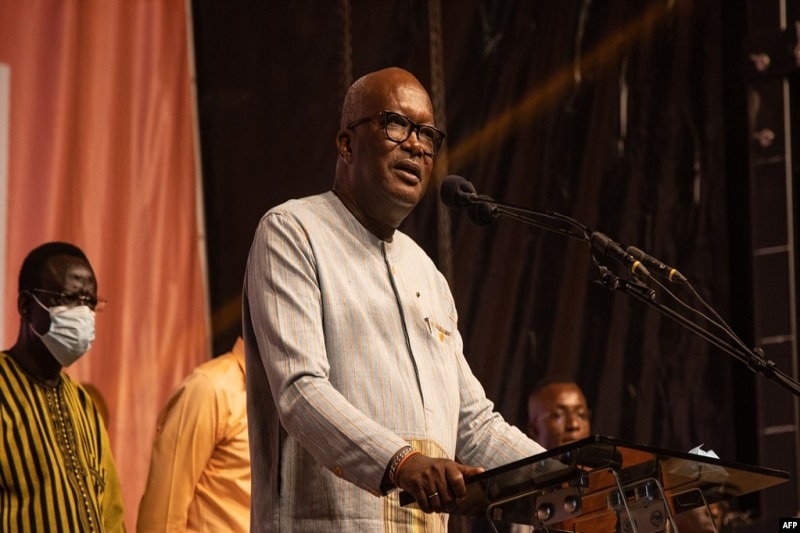Last updated on September 14th, 2022 at 02:56 pm
According to decrees that were issued on Monday, the leader of the junta in Burkina Faso, Lieutenant-Colonel Paul-Henri Sandaogo Damiba, who took control of the country in a coup in January, has appointed himself as the country’s new defense minister in response to a series of attacks carried out by jihadists.
In the first decree, which was shown live on national television, it was announced that General Barthelemy Simpore had been removed from his position as Minister of Defense. In the second one, it was declared that the president had taken over the responsibilities of the minister of national defense and veterans’ affairs.
After failing to put an end to the Islamist uprising that had first arisen in Mali in 2012, the elected leader Roch Marc Christian Kabore was overthrown on January 24 by a group of officers commanded by Damiba. Kabore’s failure to do so contributed to the group’s ability to seize power. Following its introduction into Burkina Faso in 2015 and subsequent introduction into Niger, the insurgency is currently being waged throughout a significant portion of the Sahel area. Ivory Coast and Togo are two West African coastline states where the violence has only started to spread and has the potential to go farther.
The current uprising in Burkina Faso is the country’s first mini-revolution since a transitional government was created there back in March. At that time, Damiba decided to retain the services of Simpore, who had been selected by Kabore. Another change was Colonel-Major Silas Keita, who was promoted to the rank of brigadier general and given the position of minister delegate in charge of national defense. He was the sole newly appointed minister that was presented during the meeting.
Related Posts
The shift comes following a slew of fatal attacks carried out by Islamist extremists in the West African nation that is landlocked this month. The insurgency there has already claimed the lives of more than 2,000 people. The transformation takes place in the landlocked West African nation where the insurgency has resulted in the deaths of more than 2,000 people and forced more than 1.4 million people to flee their homes. This month has seen a string of fatal attacks carried out by Islamist extremists.
Since the beginning of the year, there has been a noticeable uptick in the number of attacks, despite the junta’s assurances that the protection of the populace would be its top concern. This September has been marked by a particularly high incidence of violent crime. An attack against a military detachment in Burkina Faso’s jihadist-hit north resulted in the deaths of two soldiers and a dozen “terrorists,” according to the country’s army. The attack took place on Monday.
A little over a week prior, security sources said that nine individuals had been killed in the north as a result of separate incidents that were alleged to have been carried out by jihadists. The majority of the victims were civilians. On September 5, a supply convoy that was traveling between Djibo and Bourzanga was assaulted by a bomb caused by an improvised explosive device. At least 35 civilians were killed, while 37 more were injured as a result of the incident.
At the beginning of September, a number of regions in Damiba saw what was described as a “relative calm.” He stated that the army’s “offensive activities” had been increased and that as a consequence of a process of engagement with specific armed organizations, “dozens of youths” had given up their guns. He also stated that the Army’s “offensive efforts” had been pushed up.
On the other hand, there are still a significant number of assaults. The government does not exercise any authority over more than forty percent of the country.

